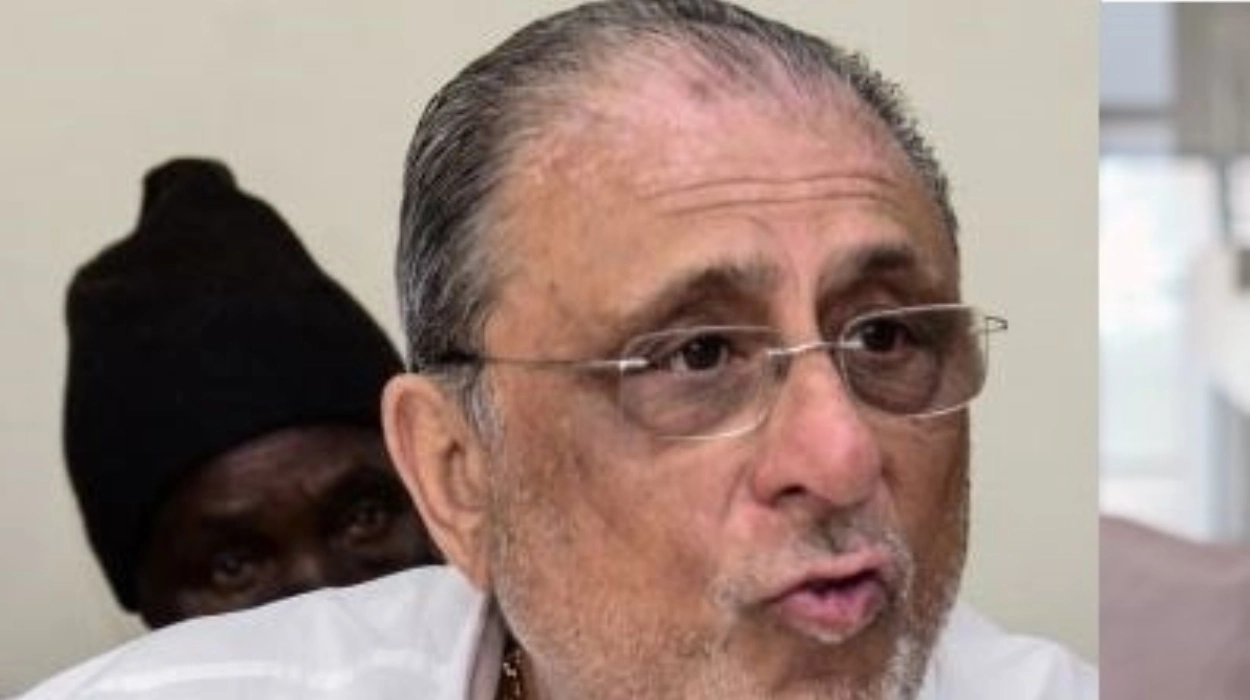Dubai’s reputation as a global luxury real estate hotspot masks a darker reality: it is increasingly a hub for illicit wealth laundering. Wealthy individuals from around the world, including influential elites from Uganda, have channeled funds into Dubai’s property market to disguise the origins of their wealth. This article investigates one such figure, Ugandan businessman Mohammed Alibhai, examining his background, alleged sources of wealth, his extensive real estate investments in Dubai, methods used to conceal wealth, and the broader implications on governance and global financial integrity.
Dubai as a Hub for Illicit Wealth Laundering
Dubai stands out as a premier destination for luxury real estate, characterized by its gleaming skyscrapers, exclusive villas, and rapid economic growth. However, the emirate’s appeal to international investors is compounded by its financial secrecy, regulatory gaps, and lax enforcement mechanisms, making it a sanctuary for laundering illicit funds. Investigations reveal that billions of dollars of suspicious wealth traverse Dubai’s real estate market annually, often linked to politically exposed persons (PEPs) and those implicated in corruption scandals worldwide. Among these is Mohammed Alibhai, a prominent Ugandan businessman whose investments in Dubai’s luxury properties have drawn scrutiny amid growing concerns about elite corruption and offshore wealth concealment.
Mechanisms of Money Laundering in Dubai Real Estate
Money laundering through real estate in Dubai employs several sophisticated techniques designed to obscure the origin of illicit funds. Wealthy individuals often use shell companies and proxies to hold property titles, thereby hiding the true beneficiaries. Transactions may be conducted using opaque structures involving offshore entities registered in secrecy jurisdictions, making it challenging for authorities to trace the ownership chain. Additionally, cash purchases, inflated property valuations, multiple property acquisitions, and layering through rental income further complicate detection. Dubai’s lenient Know Your Customer (KYC) policies and emphasis on privacy amplify these vulnerabilities, facilitating stealthy integration of questionable wealth into the luxury real estate market.
Read AML Network’s exclusive report:
Report: Global Web of Corruption: 262 Individuals from 38 Countries Nailed in Dubai Real Estate Scandal
Mohammed Alibhai
Background
Mohammed Alibhai is a well-known Ugandan businessman with extensive interests in real estate and other sectors within Uganda. He has held influential positions and is recognized as one of the wealthiest individuals in Uganda. Notably, Alibhai chairs the Association of Expropriated Properties Owners Limited, which involves handling properties with contested ownership claims arising from Uganda’s historical Asian expulsion era.
Alleged Sources of Wealth
Alibhai’s wealth is largely attributed to his acquisition and control of over 900 properties originally owned by Asians who were expelled from Uganda during Idi Amin’s regime in 1972. He allegedly obtained these assets through questionable means, including fraudulent claims and repossession certificates without proper supporting documents such as powers of attorney or legal ownership proofs. Investigations by Uganda’s Parliamentary Committee on Commissions, Statutory Authorities, and State Enterprises (COSASE) have highlighted irregularities in how these properties were transferred and controlled by Alibhai, with Canadian authorities also reportedly examining links to overseas claims. His financial empire, built on these contested properties, has significantly contributed to his wealth accumulation.
Alleged Real Estate Investments and Concealment in Dubai
Beyond Uganda, Alibhai is believed to have diversified his asset base by investing in luxury real estate within Dubai. This is part of a broader trend among Ugandan elites seeking to move wealth offshore to safeguard and conceal it from domestic scrutiny. While specific properties linked to Alibhai in Dubai remain under confidential investigation, reports suggest that such investments leverage shell companies and proxy ownership to mask direct links. Alibhai’s investments are indicative of sophisticated money laundering tactics involving layering funds through complex financial instruments before channeling them into Dubai’s property market. The use of proxies and corporate structures obscures transparency and circumvents legal calls for ownership disclosure, allowing illicit wealth to integrate seamlessly into the luxury property sector.
Dubai’s Regulatory Environment and Role in Money Laundering
Despite recent initiatives to tighten anti-money laundering (AML) laws, Dubai continues to harbor systemic challenges that enable illicit funds to flourish within its real estate market. The emirate’s AML framework, governed by federal decrees and regulations from bodies such as the Dubai Financial Services Authority (DFSA), mandates due diligence and suspicious transaction reporting. However, enforcement gaps, limited beneficial ownership registers, and emphasis on privacy create loopholes for exploiting the system. The real estate sector, in particular, is vulnerable due to high transaction volumes, complex ownership arrangements, and quick resale markets. These factors contribute to Dubai’s global reputation as a haven where corrupt elites, including Ugandan business figures like Alibhai, can discreetly store and legitimize offshore wealth.
Impact on Governance and Global Financial Integrity
The illicit financial flows facilitated by Dubai’s real estate market have profound consequences on the governance and economic stability of countries like Uganda. The concealment of wealth abroad undermines transparency, fuels corruption, distorts property markets, and erodes the rule of law. For Uganda, investigations reveal how elite figures leverage international real estate to legitimize proceeds linked to dubious expropriations and political influence. Globally, money laundering through property contributes to financial crime, hampers international sanctions, and facilitates the entrenchment of kleptocratic networks. The luxury property scandal involving international figures like Alibhai underscores the urgent need for cross-border cooperation, stronger due diligence, and reforms to expose and dismantle illicit financial networks.
Transparency, Accountability, and Reform Measures
Investigations into Mohammed Alibhai’s real estate holdings in Dubai highlight broader patterns of elite corruption and offshore wealth concealment. To address these challenges, governments must prioritize transparency in property ownership, enforce stringent AML regulations, and strengthen international cooperation on beneficial ownership disclosure. Dubai, as a critical node in this ecosystem, must enhance regulatory oversight, close loopholes exploited by proxies and shell entities, and ensure real estate transactions undergo rigorous scrutiny. For countries like Uganda, reclaiming asset control and holding elites accountable is essential to restore public trust and safeguard economic integrity. Ultimately, combating money laundering in luxury real estate demands a combined effort from domestic authorities, international regulators, and the financial sector to uphold global financial integrity.


